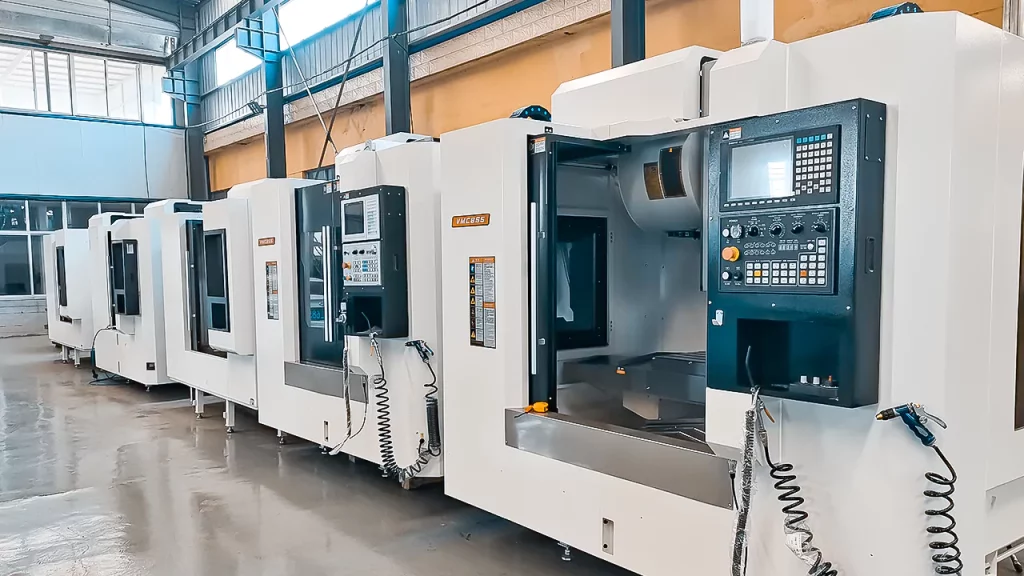Advanced CNC machining is reshaping modern manufacturing by enabling higher precision, smarter automation, and greater flexibility across materials and geometries.
From aerospace and medical to robotics and high-performance automotive, industries increasingly rely on CNC innovations to meet the demands of faster production cycles, tighter tolerances, and complex designs.
This article explores the technologies, capabilities, and real-world benefits of advanced CNC machining, and why it continues to lead precision engineering into the future.
What Is Advanced CNC Machining?
Advanced CNC machining goes beyond conventional 3-axis milling and turning.
It incorporates multi-axis machining, high-speed capabilities, automation, real-time monitoring, hybrid processes, and intelligent CAM software to manufacture complex parts with improved accuracy and speed.
Key differentiators of advanced CNC include:
-
5-axis and multi-tasking capabilities
-
High-speed machining (HSM)
-
In-process metrology and feedback loops
-
Smart toolpath generation via AI-assisted CAM
-
Automation through robotic loading/unloading systems
-
Integration with CAD/CAM and IoT platforms
The goal is simple: achieve more complex geometries, tighter tolerances, and higher throughput while maintaining efficiency and repeatability.
Core Capabilities of Advanced CNC Systems
1. Multi-Axis Machining (4-axis to 9-axis)
Unlike traditional 3-axis machines that move only in X, Y, and Z directions, multi-axis systems add rotational movement (A, B, C axes). This allows the cutting tool to approach the workpiece from multiple angles—ideal for undercuts, contours, and complex surfaces.
Industries that benefit:
-
Aerospace (impellers, turbine blades)
-
Medical (bone implants, spinal cages)
-
Automotive (manifolds, suspension components)
2. High-Speed Machining (HSM)
HSM uses ultra-fast spindle speeds (20,000+ RPM) with reduced depth of cuts to increase efficiency, reduce tool wear, and produce superior surface finishes. It’s especially effective for soft metals like aluminum or magnesium, and plastics like PEEK or Delrin.
3. In-Process Monitoring and Adaptive Control
Sensors built into the machine continuously monitor spindle load, vibration, heat, and tool wear. If an anomaly is detected, the system automatically adjusts the feed rate or tool path to maintain dimensional accuracy and avoid failure.
4. Automated Tool Changers and Robotic Arms
Advanced CNC machines often operate with minimal human input. Robotic systems automate material loading, unloading, and part rotation, enabling lights-out manufacturing for extended hours or overnight shifts.
Advanced CNC Machining Materials
The flexibility of advanced CNC allows for machining a wide range of difficult materials.
| Material Type | Examples | Industry Use Cases |
|---|---|---|
| Super Alloys | Inconel, Hastelloy, Waspaloy | Aerospace, defense, turbines |
| Titanium Alloys | Ti-6Al-4V | Implants, aircraft frames, tools |
| Hardened Steels | H13, D2, 17-4PH | Molds, dies, surgical tools |
| Engineering Plastics | PEEK, Ultem, PTFE | Medical, electronics, fluid systems |
| Lightweight Metals | Aluminum 7075, Magnesium | Automotive, robotics, drones |
These materials require optimal speeds, feeds, coolant strategies, and specialized tooling. Advanced machines allow for custom cutting strategies to reduce tool wear and increase accuracy.
Industry Applications of Advanced CNC Machining
🔧 Aerospace and Defense
-
Turbine disks, structural brackets, satellite components
-
Requires AS9100-certified processes and ultra-tight tolerances (±0.002 mm)
🏥 Medical and Surgical Devices
-
Bone screws, joint implants, surgical guides
-
Requires biocompatible materials (e.g., titanium, PEEK) and sterilization-ready finishes
🚗 Automotive and Motorsport
-
Suspension parts, engine housings, intake manifolds
-
Emphasizes lightweight materials and heat resistance
🤖 Robotics and Automation
-
Sensor housings, gear sets, structural frames
-
Demands precise alignment and modularity
⚙️ Tooling and Mold Making
-
Conformal cooling mold inserts
-
Hardened steel machining and fine surface finishing
Advanced CNC machines provide the precision and adaptability needed for these high-performance applications.
Integration with Smart Manufacturing (Industry 4.0)
Advanced CNC machining is now central to smart factory ecosystems.
With IoT integration, CNC machines are connected to cloud platforms, enabling real-time visibility into production metrics, machine health, and quality assurance.
Benefits of smart integration:
-
📊 Predictive Maintenance: Reduce unplanned downtime
-
📦 Inventory & Tool Tracking: Automate resource management
-
🧠 Process Optimization: Use analytics to improve cycle times and yields
-
🔁 Closed-loop Feedback: Automatically correct deviations mid-process
This digital connectivity turns CNC machines into intelligent systems capable of self-adjustment and data-driven decision-making.
Benefits of Advanced CNC Machining
| Benefit | Description |
|---|---|
| 🌐 Greater Design Freedom | Enables complex geometries, undercuts, multi-face parts |
| ⚙️ Higher Accuracy & Consistency | Maintains tolerances in long production runs |
| 🚀 Faster Production Cycles | Reduces lead time with better throughput |
| 🔄 Flexible for Prototypes or Production | Suitable for one-offs and full-scale runs |
| 💡 Reduced Waste & Tool Wear | Optimized toolpaths, adaptive speeds, better chip control |
Whether you're scaling production or producing intricate prototypes, these capabilities make advanced CNC the most versatile and future-ready machining solution.
Partnering for Advanced CNC Services
Not every machine shop has the equipment or technical expertise to offer advanced CNC services. Look for providers with:
-
Multi-axis (5-axis or higher) machining capability
-
Experience in regulated industries (medical, aerospace)
-
Material and tooling expertise
-
Design-for-manufacturing (DFM) support
-
Traceable documentation for quality control
If you’re looking to leverage the latest capabilities in precision machining, visit Advanced CNC Machining Services to explore full-service options tailored to your project.
Summary: Why Advanced CNC Machining Matters
As part geometries become more complex, tolerances tighten, and timelines shorten, advanced CNC machining provides the speed, accuracy, and flexibility that today’s industries require.
From custom aerospace parts to biocompatible implants and multi-functional robotic components, CNC technology is not just keeping pace—it’s pushing the boundaries of what's possible.
With smart monitoring, automation, and multi-material capability, advanced CNC machining is the backbone of modern innovation.




